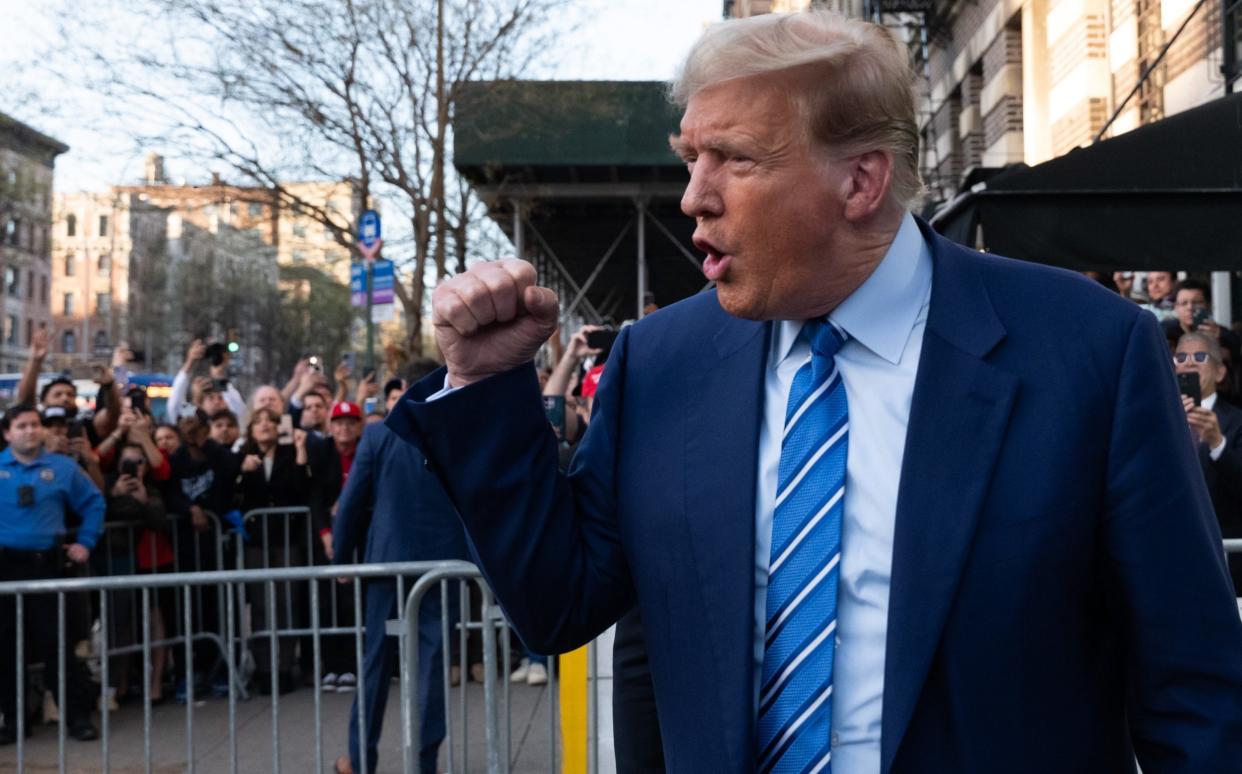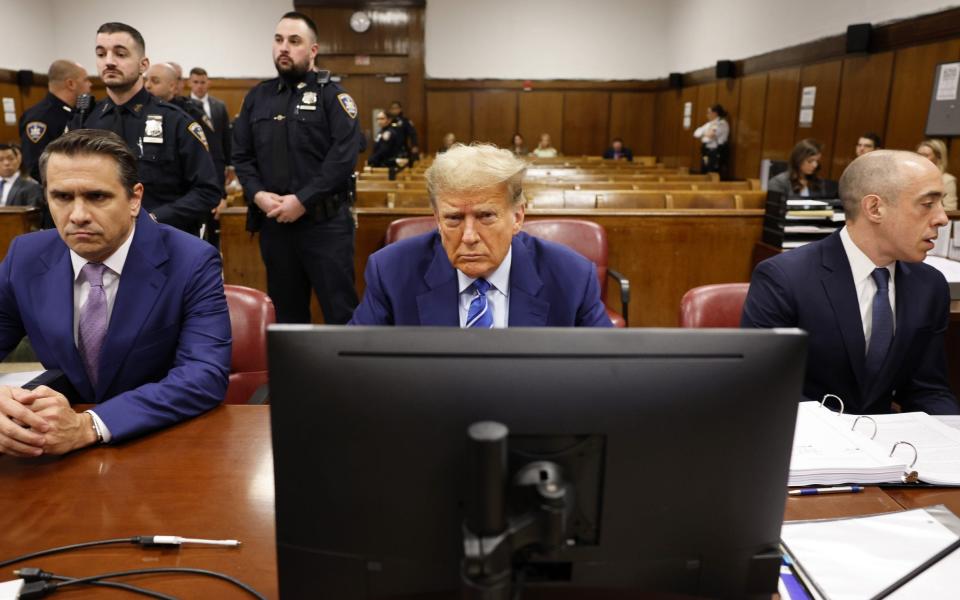Trump is ‘fascinating and mysterious’ says grandfather picked for jury in hush money trial

Donald Trump is “fascinating and mysterious”, one of the jurors selected for his hush money trial in New York said, while another admitted to getting all their news from TikTok.
Seven of the 12 jury members have been selected so far in Mr Trump’s criminal trial, in which the former president is accused of faking business records to conceal payments to an adult film star.
Dozens of potential jurors ruled themselves out on the first day after raising concerns about their ability to be impartial, while others were struck off by Mr Trump’s legal team.
A grandfather originally from Puerto Rico, selected to serve on the jury, told the court he thought Mr Trump was “fascinating and mysterious”.
“He walks into a room and he sets people off one way or another,” he said. “I find that really interesting. Really, this one guy can do all of this. Wow, that’s what I think.”
Todd Blanche, acting for the defence, seemed at a loss for words at the description of his client. “Alright,” he said eventually. “Thank you.”

Another juror said she got her news from TikTok and Google – and was one of the few to signal she did not know Mr Trump faced other criminal cases. The hush money case is the first of his four indictments to make it to court.
“I don’t like the news or newspapers,” she said, adding that she listened to podcasts on “inspirational things”.
She has little time for current affairs and tries to avoid politics, although her friends have strong opinions on the former president.
A young corporate lawyer who was also selected said he was embarrassed to admit that he was “not super familiar with the other charges” and did not follow the news closely.
He said he had been a big fan of The Apprentice while at school. Mr Trump smiled at the mention of his reality TV show, while other people in the court laughed.
As for Mr Trump’s time in office, he answered: “Some things I agreed with, some things I disagreed with.”
Before being questioned in court, jurors had to answer a list of 42 questions to determine their suitability for serving on the jury.
A number concerned the former president, including whether they followed him on social media, had volunteered for his campaign or worked for him, or read any of his books.
They were also asked whether they belonged to any “extremist organisations” – such as the Right-wing Proud Boys or Left-wing Antifa groups – or attended any rallies supporting or opposing Mr Trump.
One prospective juror insisted he could remain unbiased despite writing of the former president on social media: “Lock him up”. Juan Merchan, the judge presiding over the case, dismissed him, noting that Mr Trump could face prison if found guilty.
Another was grilled by Mr Trump’s legal team over what they labelled “extraordinarily hostile Facebook posts”. She had apparently filmed celebrations in New York following his election loss in 2020.
At one point, Justice Merchan intervened to scold Mr Trump for gesturing and muttering as the juror answered the questions while standing just feet away from the former president.
“He was audible, gesturing and speaking in the direction of the juror. I won’t tolerate that,” he complained to Mr Blanche. “I will not have any jurors intimidated in this courtroom.”
He refused to strike the woman off the jury, but Mr Trump’s legal team used a peremptory challenge to dismiss her. It has four challenges remaining as jury selection continues.
Some potential jurors seemed ready to give their opinion of Mr Trump as they were questioned by his legal team.
“He stirs the pot, he speaks his mind, you can’t judge him because he speaks his mind,” one said.
Pressed by Mr Blanche, she added: “He speaks his mind, come on, what can you say about that? If I told you all the time what I thought about people – I want to say some things to people, but my momma said be nice.”
Others seemed more reluctant to talk about the polarising former president, including one man who tried to avoid the question before wilting under pressure.
“If we were sitting at a bar, I’d be happy to tell you,” he told the court. “But in this room what I feel about President Trump is not important or inherent to either the case you’re presenting or you’re defending.”
He eventually conceded: “I’m a Democrat, so there you go, that’s where it goes with me... [but] I walk in here and he’s a defendant.”

 Yahoo News
Yahoo News 
